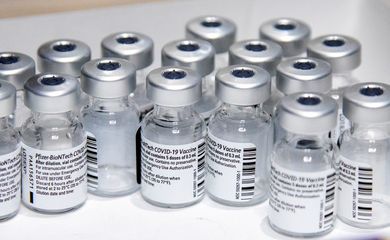CoronaVac use in children and adolescents in Brazil rejected

Brazil’s drug regulator Anvisa rejected the request by Butantan Institute for the use of the CoronaVac vaccine in children and adolescents aged three through 17.

At an extraordinary Wednesday (Aug. 18) meeting, agency directors argued the data submitted by Butantan are not enough for a conclusion on the shot’s efficiency and safety in this age group. The São Paulo–based institute is tasked with the production of CoronaVac in Brazil.
“The immunogenicity data leave uncertainties regarding how long the protection provided by the inoculation lasts,” Anvisa stated in a note.
The vaccine’s security profile, the watchdog declared, does not suffice to conclude what the risks are for children and adolescents—chiefly on account of the number of participants in the study, said to be insufficient.
“We need data on the inoculation in specific age groups. Also unknown are the efficiency or the capacity for the induction of an immune response through the vaccine in immunosuppressed children and children with comorbidities.”
To complete the request for the inclusion of 3–17-year-olds, Butantan needs to submit the pending data and lodge a new request at the agency, Anvisa declared.
Anvisa granted CoronaVac temporary authorization for emergency use in January this year. The approval of doses under such conditions is to remain valid for as long as the health emergency state resulting from the COVID-19 pandemic lasts in Brazil.
Data on immunogenicity
Nonetheless, Anvisa directors also recommended that Butantan present complementary immunogenicity data, crucial in assessing CoronaVac’s capacity to stimulate the production of antibodies, in addition to ascertaining how long these molecules stay alive.
“Even though CoronaVac has shown significant protection from COVID-19–linked hospitalizations and deaths, the prevalence of different variants of the coronavirus over time and in different locations may potentially impact the efficiency observed in clinical trials,” the agency pointed out.
As it stands today, the Pfizer vaccine is the only approved for children and adolescents from 12 to 17 years old. Pharmaceutical firm Janssen, which offers a single-dose inoculation against the disease, has been granted authorization to conclude studies with people under 18 in Brazil.
Third dose
During an extraordinary Wednesday meeting, Anvisa’s board of directors also decided to advise that the Health Ministry consider recommending a booster dose experimentally, for groups that received the two CoronaVac shots, prioritizing immunosuppressed patients and elders, among other groups.
“The decision on a booster or third dose must be coordinated by the National Immunization Program,” the agency stated. “Before going ahead with the debate on extra doses, however, we must draw attention to the need for the expansion of vaccine coverage among all apt citizens.”
Thus far, Anvisa has received two requests for clinical studies aimed at investigating the effects of an additional dose of the vaccine against COVID-19—one from Pfizer and one from Astrazeneca.



